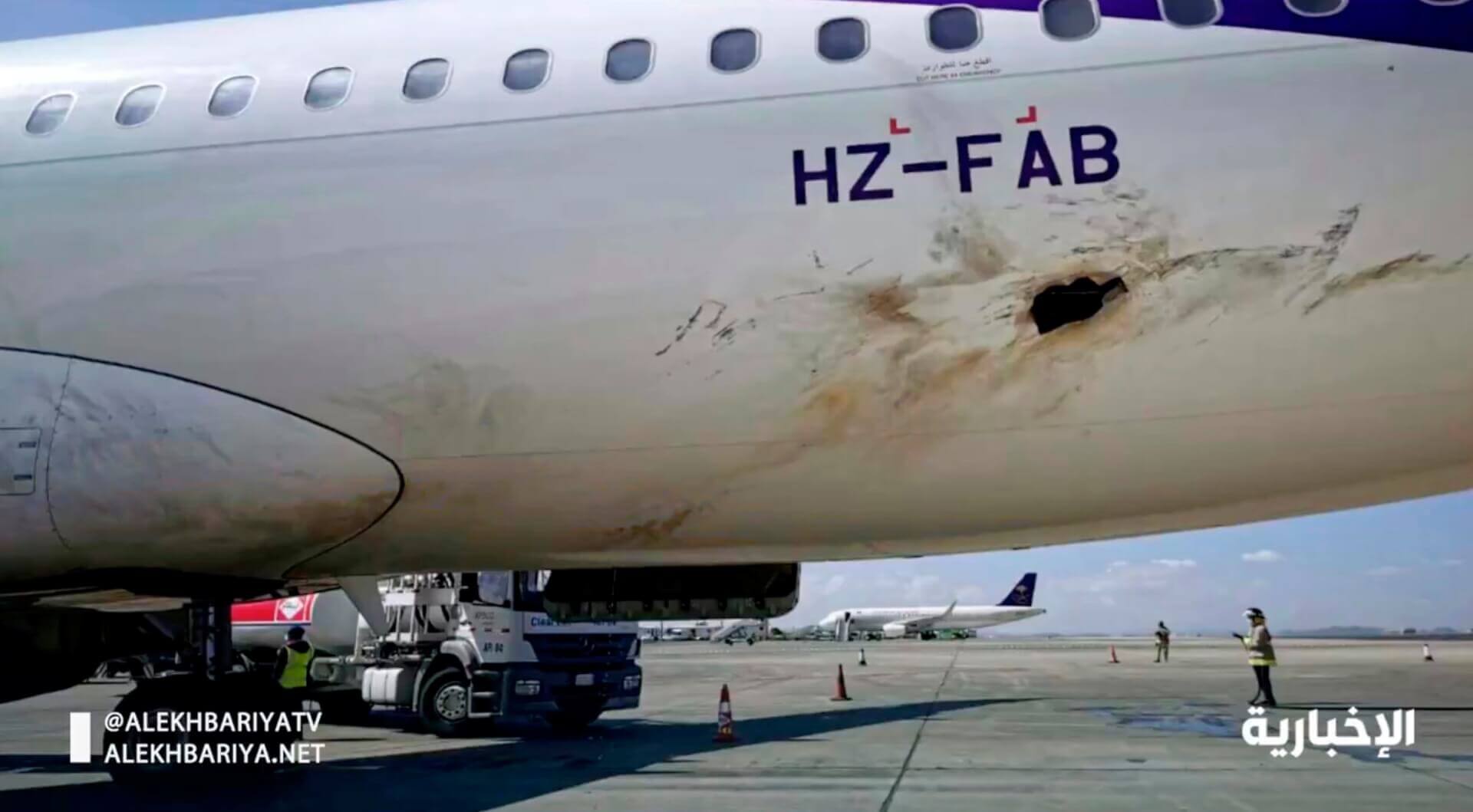On Wednesday, Yemen’s Houthi rebels attacked the Abha Airport in southwestern Saudi Arabia with four drones laden with ammunition. Following this, on Saturday, Saudi Arabian authorities claimed to have intercepted another attack by the group, inviting global condemnation.
In the Wednesday attack, no people were hurt, but a civilian plane on the tarmac caught fire. The Iran-backed Houthis soon claimed responsibility for the attack, with military spokesperson Yehia Sarea clarifying that the group considered Abha Airport to be a military, not a civilian, target, given that the base is used to carry out the Arab Coalition’s “bombing campaign” in Yemen. “This targeting comes in response to the continued aerial bombardment and the brutal siege of our country,” Sarea said.
Following this, Colonel Turki al-Maliki, the spokesperson for the Saudi-led Coalition, claimed to have successfully intercepted another attack by the group on Saturday. Saudi air defences “intercepted and destroyed a drone rigged with explosives which had been launched by the Houthis against Abha airport,” al-Maliki said on state television. However, the Houthis insisted that the drone had “hit its target with high accuracy”.
This is the fifth such attack by the group in the last five days. All of them have been reported to have struck airfields or bases in southern Saudi Arabia, including the civilian area of Khamis Mushait. In response, Saudi Arabia and its allies have claimed that the attacks constitute “war crimes”.
The attacks come only days before the United States (US) is expected to formally revoke their designation of being a terrorist group. Although the Department of State condemned the series of attacks, the US maintained that it would still be revoking the title on February 16 as previously decided, based on the argument that “the designations could have a devastating impact on Yemenis’ access to basic commodities like food and fuel.” UN spokesperson Stephane Dujarric has applauded the US action for being “extremely positive.”
Apart from the US, the attack was met with severe criticism from the rest of the international community as well. Germany, Britain and France expressed strong condemnation for the attack and called it a “violation of international law” and added that the “continued attacks of this nature, including those which target civilian areas... illustrate the seriousness of the threat that the proliferation of drones poses to the stability of the region.” In addition, foreign ministries of Egypt, Kuwait, Jordan, the United Arab Emirates, Bahrain, Lebanon and Palestine released official statements of condemnation, along with statements by the Organization of Islamic Cooperation (OIC) and the Arab League. The Arab League called the events a “dangerous escalation” of violence, while the OIC said that it “fully stood” with Saudi Arabia.
The crisis in Yemen broke out at the onset of the Arab Spring in 2011, when a popular uprising ousted the country’s long-time authoritarian president, Ali Abdullah Saleh. Saleh was soon replaced by his deputy, Mansour Hadi; however, due to his administration’s mismanagement, Yemen remains highly unstable.
This instability paved the way for Shiite Houthi rebels to take control over Yemen’s northern region, including the capital Sana’a. As a result, Hadi was forced to retreat into exile abroad. The conflict escalated dramatically in March 2015, when Saudi Arabia and eight other Arab states—backed by the US, the United Kingdom (UK), and France— began an airstrike campaign against the Houthi rebels with the declared aim of restoring Hadi’s government. However, after Sana’a fell under Houthi’s control, the Yemeni government declared the southern city of Aden as the country’s temporary capital.
Recent attacks point to the fact that a resolution to the conflict is unlikely in the immediate future, particularly as neither side appears to be interested in dialogue.
Houthi Attack on Saudi Arabia’s Abha Airport Invites Criticism From Aid Organisations
Following last week’s attack on the Abha Airport in Saudi Arabia by Yemen-based Houthi rebels, Saudi Arabia claims it intercepted another attack on Saturday.
February 15, 2021

SOURCE: AP
